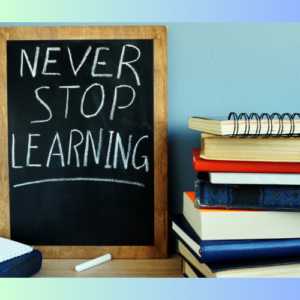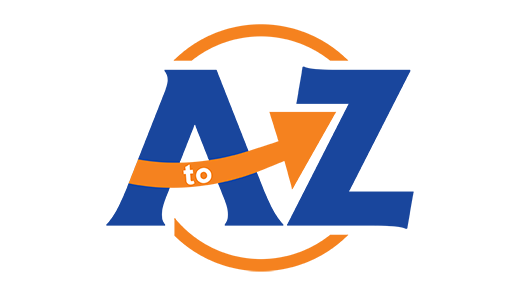17 Oct Not Embracing Learning as a Lifestyle is Suicidal
Why we should keep growing, reinventing, rebranding, and evolving to survive, stay relevant, compete, and succeed within our industries
You might have already heard the phrase: “Leaders are learners.”
That is a powerful reminder to every leader out there. Nonetheless, learning shouldn’t be exclusive to leaders alone.
In the information age, learning should be a hard currency for everyone transacting in the 21st C market and workplaces. It should be:
- A lifestyle.
- Used to survive and stay relevant.
- Our competitive advantage…
If you wonder why you should bother going the extra mile to learn and grow consistently, especially if you have a formal education and a well-paying job, think about these realities:
- The world changes fast, and whatever you learned so far may be outdated, if not obsolete, within a few months, a few years max.
- Many of the skill sets that brought you this far and have made you a superstar may become irrelevant at the next level.
- Employers and clients have multitudes of options well beyond their shores to hire the next person or company cheaper than they pay you if you stay the same.
- If you desire to fly at a higher frequency and become indispensable within your organization and industry, you must differentiate yourself by developing and refining some advanced skills.
In short, if you don’t embrace learning as a lifestyle and keep learning, growing, and evolving, you’re committing suicide!!!
The good news is that learning has become cheaper and more accessible than ever.
It is on you if you don’t leverage this information age to consistently grow, reinvent yourself, and keep developing high-impact and high-revenue competencies.
The challenge is that regardless of the decentralization, accessibility, and affordability of learning, some barriers prevent many from tapping into the opportunity the information age offers to keep growing and increasing their odds of success exponentially.
The first barrier is clarity. When you have so many choices, which ones should you focus on? To help you gain clarity, you should ask these and other similar questions:
- Which themes are critical to achieving my goals, pursuing my passion, and fulfilling my purpose in life? There are many options out there. You don’t have enough resources, time, and energy to learn everything. Pick your lane! Pick your fight!
- Which skills and competencies do I need to succeed where I’m today and at the next levels? Where you’re now and where you plan to go next, there are mandatory competencies that give you an edge. You must identify these few critical competencies and begin developing, refining, and mastering them.
- Where do I get my education? From whom should I be learning? You should choose the right institutions, platforms, and education providers. Not all are equal. If you can, go out and learn from the best. Learn from those who practice what they preach.
I’m assuming that you’re a learner. Otherwise, you wouldn’t be reading a blog with such a title and subtitle.
Let me ask you:
- For which of the questions above have you already got answers?
- What are some of the learning initiatives that are going on with you right now?
 Let me share mine. Though I was convinced a long time ago about embracing learning as a lifestyle, it took me long before I gained clarity. I was all over the map before I became focused. If you go and read my bio, I’ve all kinds of degrees and qualifications…
Let me share mine. Though I was convinced a long time ago about embracing learning as a lifestyle, it took me long before I gained clarity. I was all over the map before I became focused. If you go and read my bio, I’ve all kinds of degrees and qualifications…
Once I gained clarity and recognized the kind of education I needed to excel in what I was doing, I began tapping into informal learning opportunities to complement my formal education.
What is more? I decided to prioritize learning, especially when I enter a new industry. I’m not your guy who plows through in a new field for which I’m a stranger. I don’t fully depend on third parties to help me succeed. Though I may use third parties and leverage the knowledge and experiences of professionals in the industries I’m part of, I always take matters into my own hands and learn the basics to lay a strong foundation.
For example, when I left my software engineering career and entered the leadership development field more than a decade ago, I:
- Enrolled in a leadership doctoral program.
- Read hundreds of books on the subject.
- Attended many courses.
- Got the certifications necessary to excel as a speaker, coach, consultant, and facilitator in the leadership development industry, such as PMP, MBTI, EQ, ISD, etc.
During COVID, I vowed to improve my writing. I read tons of books on the subject matter and got a certification. I’ve practiced what I learned to improve my websites, blogs, articles, and manuscripts. Not only that, but I also began helping others improve their content and copywriting. Even when I must hire a freelancer copywriter, I now know how to scope, price, and assess their work properly.
I did the same thing when I figured out that I was poor in marketing, promoting, and selling my products and services…
In the past few years, I also decided to provide Success Pathways services to real estate, finance, banking, and investment leaders. I also wanted to raise capital and invest in commercial real estate and businesses. Like many who depend on agents and brokers, I could have decided to focus on the business and investment side of things and let others take care of the rest for me.
However, that is not how I operate. When I enter any industry, I must at least know the basics and recognize where the quicksand and wild animals are in that industry. Afterward, I may hire or delegate all or some of the responsibilities.
I’m not saying this is the way you should approach when you join a new industry. The point I’m making here is the importance of constantly learning, growing, reinventing, rebranding, and evolving to survive, stay relevant, and succeed in life, our careers, and other endeavors.
Since learning is my lifestyle, I first read some books on real estate, investment, and raising capital. I then signed up for the required courses. So far, I got my first license and am working on the next one…
I don’t solely depend on books and courses, though. I also have mentors.
Besides, I don’t stop at the basics and getting certifications. I will continue to update myself because these- for that matter, any industry in the 21st C- are dynamic fields, and things change constantly. For instance, there are two prestigious commercial real estate and business brokerage designations. They may take 1 – 3 years to fulfill course and transaction requirements.
Yesterday, after two weeks of intense learning and studying, I completed one of the four courses necessary to get the prestigious commercial real estate designation. During the weekend, I reviewed notes, took the exam, and passed it with a 98% score. I only missed one question
Why am I sharing all of these? I’m not bragging. I’m here to prove a point and let you know that I’m advising you on what I have been doing for years and still do.
In conclusion, if we desire to survive, stay relevant, compete, and succeed in what we do, we don’t have any other choice but to keep learning, growing, and evolving. We must adopt learning as a lifestyle, not as a one-time act to get formal education and go into hibernation till we retire. We should also keep diversifying our competencies. We shouldn’t put all our eggs in one basket. You don’t want to be a one-trick pony in this highly competitive century and volatile economy. If, for whatever reason, your current job, company, or industry shrinks or even disappears, you should be able to make a smooth transition into another career or field to stay relevant, remain competitive, and indispensable in the 21st century’s work and marketplaces.
More blogs on this theme to come. Stay tuned!
